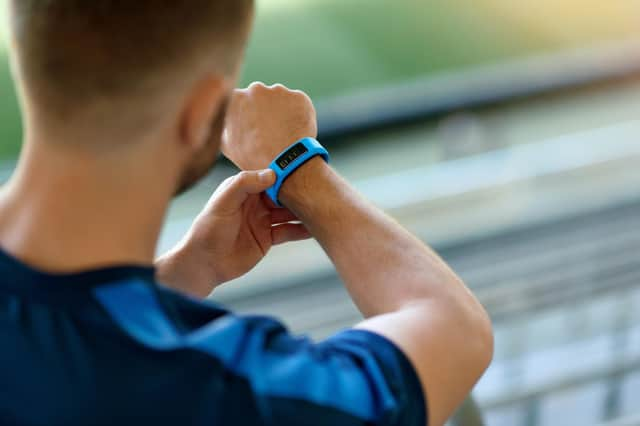Dr's Casebook: Wristbands may harbour germs so need cleaning


Dr Keith Souter writes: Since the Covid pandemic people have become a lot more rigorous in washing their hands. However, wristbands of all sorts, watches, fitness monitors, friendship bands and bracelets may not be given the sanitisation they need.
Researchers in Florida tested wristbands of various materials and textures to determine their risk for harbouring potentially harmful bacteria that can cause infections.
Advertisement
Hide AdAdvertisement
Hide AdNote that this is bacteria we are talking about, because we can culture them whereas viruses are much harder to detect.
They tested plastic, rubber, cloth, leather and gold and silver wristbands to see if there is a correlation between wristband material and the prevalence of bacteria. They looked at bacterial counts, type of bacteria and their distribution on the wristband surfaces. They also assessed the effectiveness of disinfectant sprays, alcohol wipes and apple cider vinegar.
They found that all wristbands were contaminated with bacteria, but gold and silver had very little in comparison to rubber and plastic. This may be because rubber and plastic have greater porosity and static nature.
There was no difference between males and females, but interestingly, people who had exercised vigorously when the samples were taken had significantly higher counts.
Advertisement
Hide AdAdvertisement
Hide AdThe commonest type of bacteria found were Staphylococcus bacteria, which was present on 85 per cent of wristbands. Rather worryingly, 60 per cent yielded E. coli, an intestinal micro-organism. Among other things it can cause urinary infections.
Looking at the three types of disinfectants they found that disinfectant spray and alcohol wipes were effective at killing the bacteria within 30 seconds, whereas apple cider vinegar required two minutes in contact.
So, if you wear wristbands of any sort it isn’t good enough to take them off when you have a shower or wash your hands, they need cleaning as well.
I await with interest further research on other everyday things we carry and use frequently, like earphones and mobile phones. Meanwhile, I’ve ditched the chronometer.